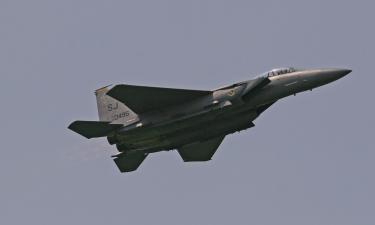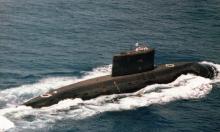Tombstone
 It is no secret that Israeli-Syria relationships have been very uneasy for a few past decades. Syrian army took active participation practically in all wars between Arabs and Israeli, and as a result, Damask pays the full price for losing in those conflicts. On the other hand, this only strengthened Syrian governors' anti-Israeli positions.
It is no secret that Israeli-Syria relationships have been very uneasy for a few past decades. Syrian army took active participation practically in all wars between Arabs and Israeli, and as a result, Damask pays the full price for losing in those conflicts. On the other hand, this only strengthened Syrian governors' anti-Israeli positions.
The current Syrian president, Bashar Ashid generally continues the same policy of hatred to Israel, which had been carried out by his father Khafez Ashad. But the times are different now, and while Ashad-father enjoyed Soviet Union's support, his son can not count on such a help. Accordingly, now that Bashar Ashad faced powerful pressure of the USA (especially after Saddam Hussein's fall), he must be muc more diplomatic than his father: it was made explicit to Syria that she can easily share its neighbouring Iraq's unsuccessful lot.
To protect himself from the possible attack, President Ashad has to make concessions. They are not principal yet, however. Having confirmed recently that his country does possess chemical weapons, Bashar Ashad was clever enough to underline that Syria needs it for protection against possible outer aggression. He did not deny Damask counts the most possible aggressor the close Israel.
On the other hand, these confessions of the Syrian president are not revelations by themselves. It was a long known fact that Syria possesses chemical weapon stocks. The chemical weapon creation program was started in the 1970ies. Presently, Syria can produce yperite and nervous-paralytic gases. Delivery means include "SCAD-C" rockets with active radius up to 600 kilometers, acquired from North Korea. Officially Syria does not see military poisons as weapons of mass destruction. According to the country's military doctrine, they are components of military parity only with Israel and would be used only in the case of Israel's wide-scale aggression against Syria. But it is hardly a satisfying explanation for Israel.
Bashar Ashad would agree to destroy the chemical weapon arsenals, but only if Israel agrees to destroy its nuclear arsenal. Giving that Israeli government has never officially confirmed existence of its nuclear weapons, Syria's poisoning gases would not be destroyed in close future.
Another problem worsening relationships between the two countries is Golan heights status. After losing Golans in the Six Days war in 1967, Syrians have never gave up desire to take it back. Yet Israel counts this territory its own. Various arguments being provided: from security concerns to the legal grounds (in the end of the XIX century count Rotshild bought from Osman Empire a part of Syrian land which included Golans as well. And in 1942 Syrian government confiscated that land).
Yet the current Israeli government does not appeal straight to the Rotshild's contract. Instead, in the last days of 2003 a governmental committee approved a three years plan of Golan heights development. It proposes to provide USD70mln for construction objects of municipal, industry, agriculture and tourism infrastructure, building 900 new houses, and doubling number of Israelis living there.
This news set Damask on rage. Syrians did even bring this matter to the UN attention. Yet it can not be said that in Israel itself is single in opinion towards the Golans question. On one hand, construction minister E.Eitham said that "President Ashad, it seems, now understands that if Syria really wants to become a part of the free world, she is better to refuse any territorial claims to Israel". And one of the parliament members from "Avoda" party claimed in reply that "this decision of the government is in fact a stone closing the tomb where a chance for success in peaceful negotiations with Syria is buried. Finances provided for Golan heights development could be invested in development of Galilea"
Finally, the third problem, threatening perspectives of Syria-Israel relationships is Damask's support of Palestinian organisations. And in this case it is difficult to speak of any compromise possible soon. On one hand, in an interview to "The Daily Telegraph", Bashar Ashad denies any connections between Damask and Palestinian organisations. On the other, he speaks about suicide bombers support, claiming that their attacks became "a reality which we can not control" and blames for this on "Israeli murders" and "Israeli occupation".
It is clear that a part of his comments Bashar Ashad makes to gain support of so-called "Arab street", or to speak precisely, of radical groups leaders. If Syrian president loses their sympathy ahead of time, he risks to earn many problems. Yet on the other hand his public speeches are not always similar to the real deeds. In the end, nothing prevented Syrian special forces to cooperate with Americans in search of Al-Qaeda members on the Syrian territory.
If Bashar Ashad is prepared to cooperate with Americans, but not with Israel. There are a lot of mutual blames and demands saved by each side, but neither Israel nor Syria is ready to make the first step. Yet now Damask is in a much more weak political position than his southern neighbour, and Bashar Ashad can hardly demand anything from Israel, especially if he would face a dilemma: to lose power or to agree. It is obvious which way the Syrian president would take…
Subscribe to Pravda.Ru Telegram channel, Facebook, RSS!




